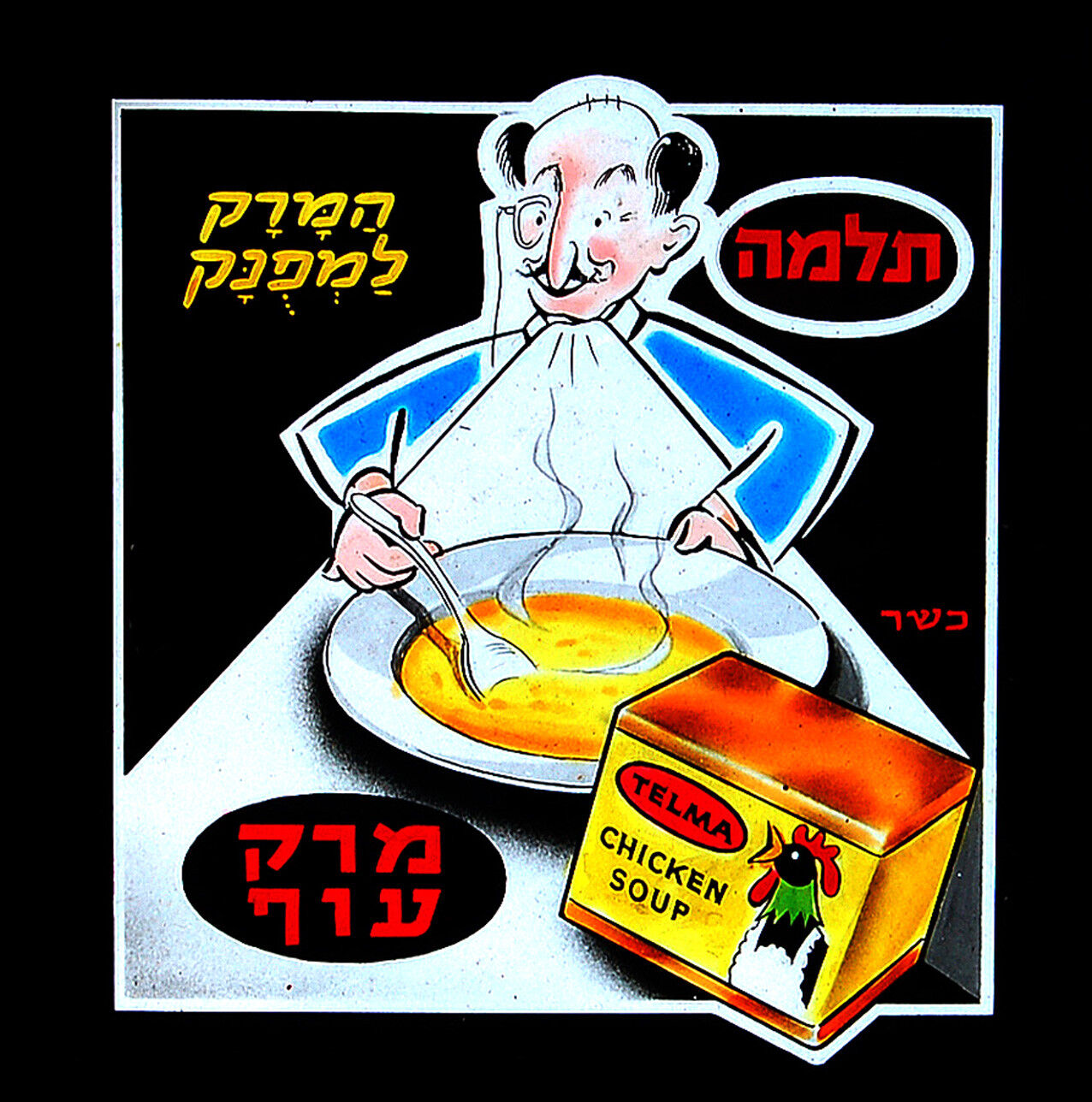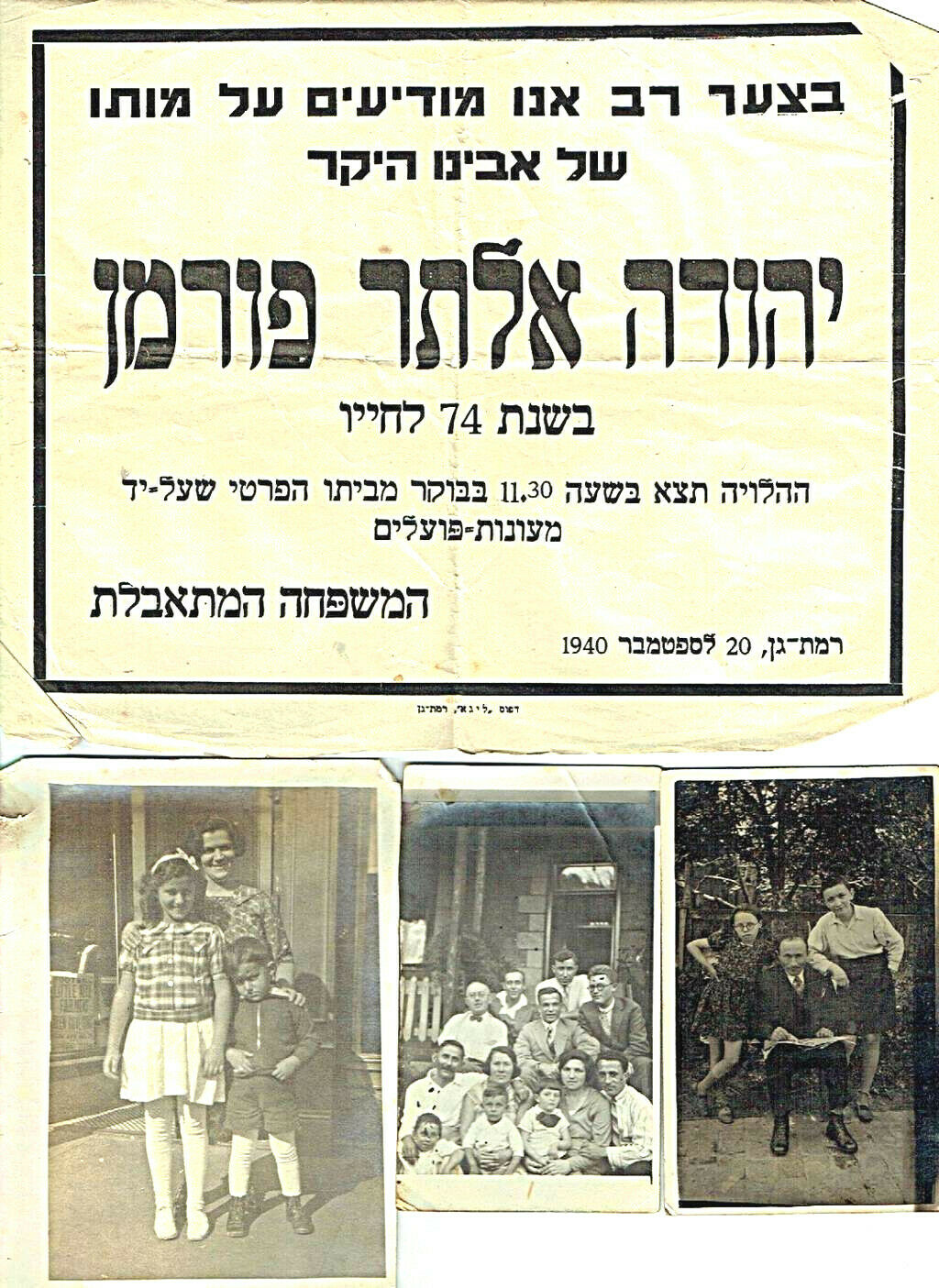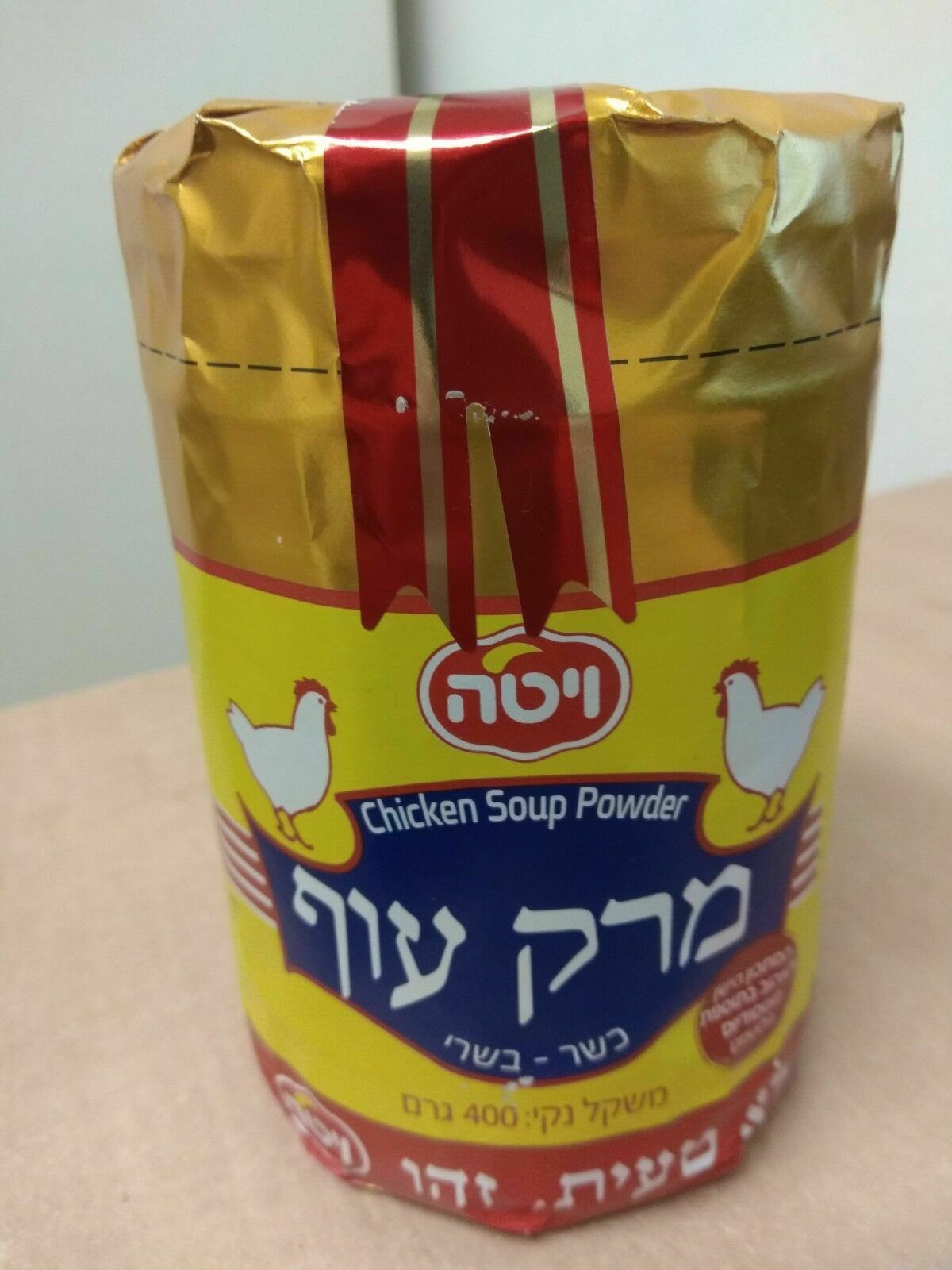-40%
1950 Jewish KOSHER CHICKEN SOUP Hebrew MOVIE GLASS SLIDE Israel COOK Judaica VR
$ 32.6
- Description
- Size Guide
Description
DESCRIPTION: Here for sale is an ORIGINAL vintage 1950's ADVERTISEMENT Movie GLASS SLIDE for JEWISH CHICKEN KOSHER made in Israel SOUP - Please note - The years were 1950's and the instant soup was yet to come - The advertising IMAGE was for a CUBE of KOSHER CHICKEN SOUP powder for boiling . This magnificetly designed poster-like ADVERTISEMENT is indeed a RARE BEAUTY . This image was projected on MOVIE SCREENS in Tel Aviv , Jerusalem , Haifa and elsewhere during INTERMISSION times between Westerns , Charlie Chaplin films or war films . The GLASS SLIDE ADVERTISEMENT
was issued in the 1950's by the TELMA food factory to promote its ISRAELI TYPICAL KOSHER PRODUCT - The home made Kosher CHICKEN SOUP . The typical 1950's SLOGAN is "HAMARAK LAMEFUNAK " ( The SOUP for the SPOILED PERSON - Doesn't rhyme in English....)
. The slide SIZE is around 3.5" x 3.5" . Very good condition.
( Please look at scan for actual AS IS images ) .
The GLASS SLIDE will be shipped flat , Protected by a rigid surface inside a special protective packaging.
AUTHENTICITY
:
This GLASS SLIDE comes from a TELMA old wharehouse and is guaranteed ORIGINAL from the 1950's , NOT a reproduction , It holds a life long GUARANTEE for its AUTHENTICITY and ORIGINALITY.
PAYMENTS
:
Payment method accepted : Paypal
& All credit cards
.
SHIPPMENT
:
Shipp worldwide via registered airmail is $ 25 . The GLASS SLIDE will be shipped flat , Protected by a rigid surface inside a special protective packaging.
Will be sent around 5-10 days after payment .
Chicken soup is a traditional dish of the Jewish kitchen. The 12th-century rabbi and physician Maimonides touted the benefits of chicken soup to one's health.
Ashkenazi Jews were often very poor, but chicken-raising required few resources.
Most Jewish families would try to acquire at least one chicken for Shabbat and try to make the most of it, using as much of the chicken as they could. Dishes such as chopped liver,
helzel
(stuffed chicken neck),
gribenes
(crackling made from fat and skin),
pupik
(roasted gizzards),
p'tcha
(chicken feet) were born of poverty-driven necessity. Chicken fat was rendered into schmaltz and used for cooking. The remaining carcass was used to prepare the soup. The soup is prepared with herbs like parsley and fresh dill or thyme, was often served with
kneidlach
(matzah balls),
kreplach
(dumplings),
lokshen
(flat egg noodles), or
mandlen (Shkedei Marak in Israel)
(soup "nuts"). A traditional garnish was unlaid chicken eggs, which were taken from a hen and boiled in the soup.Modern health standards make these difficult to obtain now. Chicken soup is a soup made from chicken, simmered with various other ingredients. The classic chicken soup consists of a clear broth, often with pieces of chicken or vegetables; common additions are pasta (e.g., noodles, although almost any form can be used), dumplings, or grains such as rice and barley. Chicken soup has also acquired the reputation of a folk remedy for colds and flus, and in many countries is considered a comfort food. Traditionally, American chicken soup was prepared using old hens too tough and stringy to be roasted or cooked for a short time. In modern times, these fowl are difficult to come by, and broiler chickens (young chickens suitable for broiling or roasting) are often used to make soup; soup hens or fowl are to be preferred when available. Kosher foods are those that conform to the regulations of
kashrut
(Jewish dietary law). Food that may be consumed according to
halakha
(Jewish law) is termed
kosher
in English, from the Ashkenazi pronunciation of the Hebrew term
kashér
(
כָּשֵׁר
), meaning "fit" (in this context, fit for consumption). Food that is not in accordance with Jewish law is called
treif
(Yiddish:
טרײף
or
treyf
, derived from Hebrew
טְרֵפָה
trēfáh
). A list of some kosher foods are found in the books of Leviticus 11:1-47 and Deuteronomy 14: 3-20, as are also certain kosher rules. Reasons for food not being kosher include the presence of ingredients derived from nonkosher animals or from kosher animals that were not slaughtered in the ritually proper manner, a mixture of meat and milk, wine, or grape juice (or their derivatives) produced without supervision, the use of produce from Israel that has not been tithed, or the use of non-kosher cooking utensils and machinery
Israeli cuisine (Hebrew:
המטבח הישראלי
ha-mitbach ha-yisra’eli
) comprises local dishes by people native to Israel and dishes brought to Israel by Jews from the Diaspora. Since before the establishment of the State of Israel in 1948, and particularly since the late 1970s, an Israeli Jewish fusion cuisine has developed.Israeli cuisine has adopted, and continues to adapt, elements of various styles of Jewish cuisine and regional Arab cuisine, particularly the Mizrahi, Sephardic and Ashkenazi styles of cooking. It incorporates many foods traditionally eaten in Middle Eastern and Mediterranean cuisines, and foods such as falafel, hummus, shakshouka, couscous, and za'atar are now thought to be synonymous with Israeli cuisine.Other influences on cuisine are the availability of foods common to the Mediterranean region, especially certain kinds of fruits and vegetables, dairy products and fish; the distinctive traditional dishes prepared at holiday times; the tradition of keeping kosher; and food customs specific to Shabbat and different Jewish holidays, such as challah, jachnun, malawach, gefilte fish, cholent (hamin) and sufganiyot. New dishes based on agricultural products such as oranges, avocados, dairy products and fish, and others based on world trends have been introduced over the years, and chefs trained abroad have brought in elements of other international cuisines.
Kosher foods are those that conform to the regulations of
kashrut
(Jewish dietary law). Food that may be consumed according to
halakha
(Jewish law) is termed
kosher
in English, from the Ashkenazi pronunciation of the Hebrew term
kashér
, meaning "fit" (in this context, fit for consumption). Food that is not in accordance with Jewish law is called
treif
(Yiddish:
טרײף
or
treyf
, derived from Hebrew A list of some kosher foods are found in the books of Leviticus 11:1-47 and Deuteronomy 14: 3-20, as are also certain kosher rules. Reasons for food not being kosher include the presence of ingredients derived from nonkosher animals or from kosher animals that were not slaughtered in the ritually proper manner, a mixture of meat and milk, wine, or grape juice (or their derivatives) produced without supervision, the use of produce from Israel that has not been tithed, or the use of non-kosher cooking utensils and machinery. ebay4513















